To facilitate social distancing during the COVID-19 pandemic, Texas Governor Greg Abbott recently issued two executive orders temporarily relaxing requirements for in-person notarization of certain documents. The first order (the “Estate Planning Order”), issued on April 8, permits the “remote notarization” of certain estate-planning, advance-directive and probate documents. The second order (the “Real Estate Order”), issued on April 27, allows remote notarization of real estate documents. In each case, the remote-notarization process requires a Texas notary public (or “notary”) to participate by two-way videoconference (such as Skype, Zoom, or Microsoft Teams). Although the two orders are similar, there are also important differences between them, as explained below.
In addition to these two temporary orders, there are other, permanent alternatives to in-person notarization available under Texas law. They are also briefly discussed below.
Estate Planning Order.
The Estate Planning Order suspends certain statutes that would otherwise require in-person notarization for the following types of estate-planning, advance-directive and probate documents:
- Self-proved will.
- Durable power of attorney.
- Medical power of attorney.
- Directive to physician (the Texas term for a “living will”).
- Oath of an executor, administrator or guardian.
The notary must participate by videoconference, and must verify the identity of the signer either by personal knowledge or a government-issued ID with the signer’s signature and photo. The signer must then transmit the signed document to the notary by electronic means, such as email or fax, and the notary must notarize the document and transmit it back to the signer electronically.
There is an important caveat regarding the signing of a self-proved will. (A “self-proved will” is simply a will that includes a “self-proving affidavit,” making it easier to probate after the signer’s death.) Although the Estate Planning Order permits the remote notarization of a self-proved will, it does not relax the requirement that two witnesses be physically present at the signing (and themselves sign the will as witnesses).
The Estate Planning Order will remain in effect until terminated by the Governor, or until the Governor’s disaster declaration of March 13 (regarding COVID-19) is lifted or expires
Real Estate Order.
The Real Estate Order, issued on April 27, permits the remote notarization by videoconference of real estate documents, such as deeds and mortgages (known in Texas as deeds of trust). The requirements for the notary to verify the signer’s identity are the same as those under the Estate Planning Order, except that the Real Estate Order also permits verification by a credible witness who personally knows both the signer and the notary.
The Real Estate Order imposes additional requirements not found in the Estate Planning Order:
- Both the signer and the notary must be physically located in Texas during the videoconference, and they must orally affirm that fact. The signer must also state which documents are being signed, and the act of signing them must be close enough to the camera for the notary to see it clearly. (A recording of the videoconference will be retained by the notary for two years.)
- The document must contain language substantially similar to the following: “This notarization involved the use of two-way audio-video communication pursuant to the suspension granted by the Office of the Governor on April 27, 2020, under section 418.016 of the Texas Government Code.”
- The most important difference between the two executive orders is the requirement in the Real Estate Order that the notary must notarize (sign, and stamp or seal) the originally-signed document – that is, the paper document containing the signer’s original, “wet-ink” signature. This requires the signer to physically send the originally-signed document to the notary by courier, mail or overnight carrier – rather than merely emailing or faxing it, as is permitted under the Estate Planning Order. (The notarization will be deemed effective, however, at the date and time of the signing during the videoconference.) After the notary has notarized the document, it then must be sent to the county clerk of the county where the real estate is located, to be filed and recorded in the county’s real property records. Depending on whether the county permits e-filing of real estate documents, whether the notary is authorized to make such e-filings, and where the notary is located, there could easily be a one- or two-day delay (even using overnight delivery) between the original signing of the document and its filing in the county records.
The Real Estate Order is also limited in two important respects:
- It suspends the Texas statute – Section 121.006(c)(1) of the Texas Civil Practice and Remedies Code – that requires in-person notarization of documents by acknowledgment (and by “proof,” a rarely-used procedure). That statute is not limited to real estate documents. But the Real Estate Order states that the suspension is “for the purpose of acknowledging real-estate instruments, by videoconference.” In other words, the Real Estate Order presumably cannot be used for the remote notarization of any documents other than real estate documents.
- Because the Real Estate Order only suspends the statute requiring in-person notarization by acknowledgment, it leaves in place statutes that require in-person notarization by other means. Although notarization “by acknowledgment” is the most common type of notarization – applicable to deeds, deeds of trust, easements and many other types of real estate documents – there are some real estate documents that must be “sworn to” before a notary, such as affidavits and declarations. The distinction between these two types of notarization is subtle but important. In a notarization “by acknowledgment,” the signer merely acknowledges to the notary that he or she signed the document. In a “sworn” notarization, by contrast, the signer also swears to the notary that statements he or she made in the document (such as an affidavit) are true.
Because it only suspends in-person notarization of real estate documents by acknowledgment, therefore, the Real Estate Order is not available for real estate affidavits or declarations. This means, for example, that the Real Estate Order does not permit remote notarization of a mechanic’s lien affidavit, which is the crucial document for perfecting a mechanic’s lien in Texas.
The Real Estate Order will remain in effect until the earlier of May 30, 2020, or the termination of the Governor’s COVID-19 disaster declaration of March 13.
Other alternatives to in-person notarization.
Texas law offers two other options for avoiding in-person notarization. Although both are relatively new, they predate COVID-19 and will remain in place after the pandemic subsides.
Online notarization.
In 2018, Texas became one of the first states to permit remote “online notarization” of documents, by notaries who have been specially commissioned as an “online notary public.” Like “remote notarization” under the two COVID-19 executive orders, it requires a two-way videoconference, and it has its own requirements for the verification of a signer’s identity.
“Online notarization” can be used for any type of notarization (including sworn as well as acknowledged documents), and any type of document. In those respects it is considerably broader than the types of “remote notarization” authorized by the two Executive Orders. On the other hand, “online notarization” requires a specially-commissioned “online notary public” and compliance with specific regulatory requirements. In general, it is an option that has not been widely adopted in Texas.
The requirements for “online notarization,” including the special forms of acknowledgment and jurat that must be used, are set out in Sections 406.101 through 406.113 of the Texas Government Code and described in the Texas Secretary of State’s “online notary public” materials.
Unsworn declarations.
Texas had historically required that all affidavits and declarations be sworn to before a notary. As discussed above, this is still the case for real estate affidavits and declarations, including mechanic’s lien affidavits, that require recordation in the county records. (It is also the case for affidavits and declarations concerning personal property, if they require county recordation.) As a result of statutory changes beginning in 2011, however, other types of affidavits and declarations – those not concerning real estate – can be signed without any notarization. Instead, the signer can now simply sign a statement in the document declaring “under penalty of perjury that the foregoing is true and correct.” The full form of the statement – which must also include the signer’s full name, date of birth and address – can be found in Section 132.001 of the Texas Civil Practice and Remedies Code. Although not expressly required, it would be prudent to consider stating somewhere in the document that it constitutes an “unsworn declaration” under such statute.

Alec C. Herzog

Philip M. Kinkaid


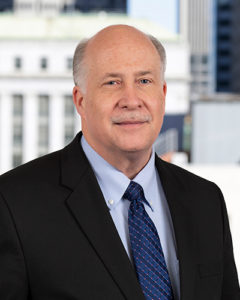
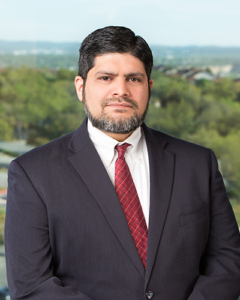
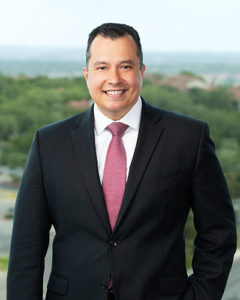



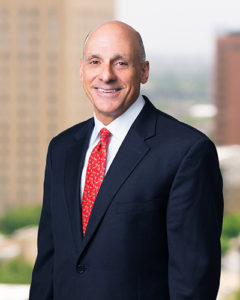
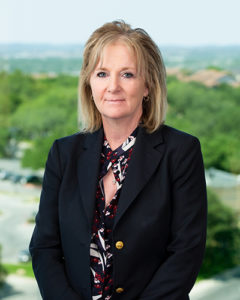

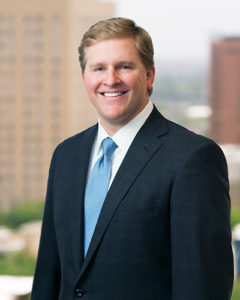


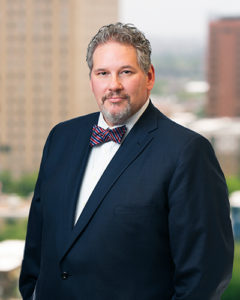






Recent Comments